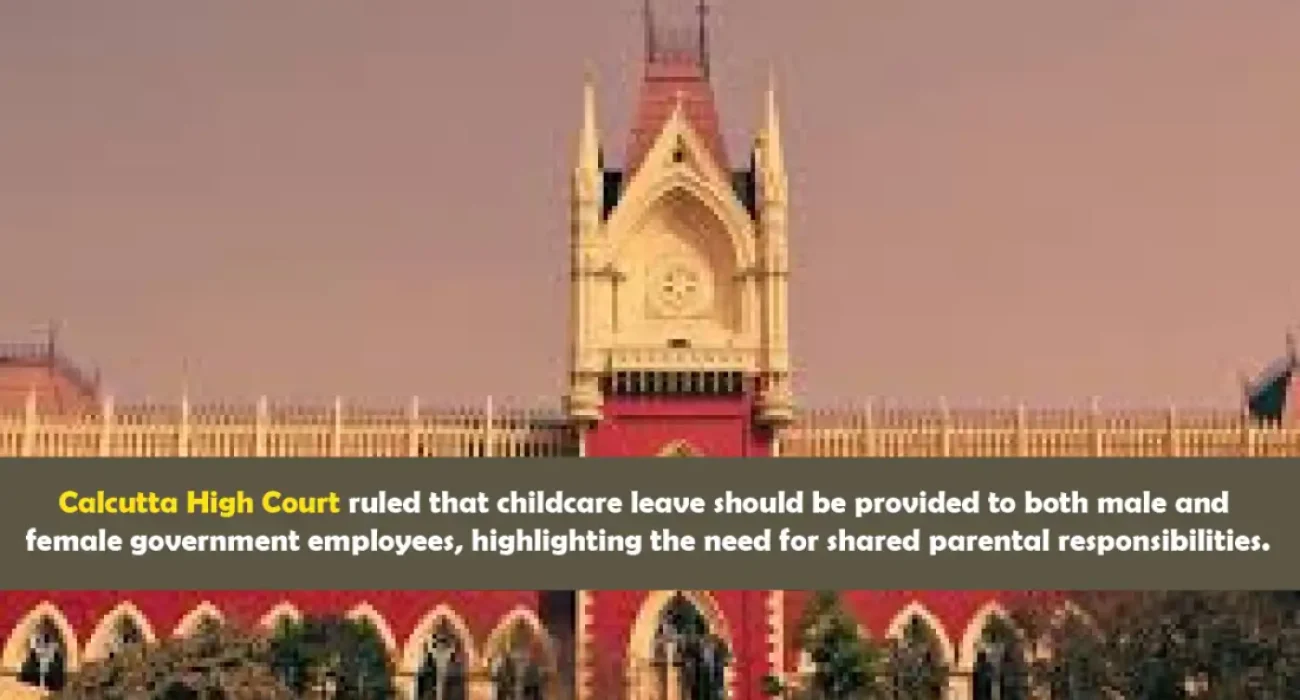

Table of Contents
ToggleThe petitioner is a teacher in a primary school and a widower with two minor children who are currently attending school. After the passing of his wife, the petitioner has become the sole caregiver for his children, responsible for their physical, educational, and emotional development. To fulfil these responsibilities, the petitioner seeks to avail the benefit of Child Care Leave. According to a Memorandum dated 25th February 2016, the Government of West Bengal provides a Paternity-cum-Child Care Leave of thirty days for male employees. The petitioner contends that this period is insufficient for his needs and requests an extension similar to the Child Care Leave granted to female employees, which allows up to 730 days of leave as per a Memorandum dated 17th July 2015.
The petitioner argues that the policy granting only thirty days of Paternity-cum-Child Care Leave to male employees is discriminatory, especially when female employees are entitled to up to 730 days of Child Care Leave. He contends that as a widower and single parent, he should be granted the same benefit as female employees. The petitioner also cites the Constitution’s principle of equality and references legal provisions, including the Juvenile Justice (Care and Protection of Children) Act, 2015, and a notification from the Ministry of Personnel, Public Grievances and Pensions dated 11th December 2018, which extends Child Care Leave to male employees for up to 730 days. The petitioner requests that the same policy be applied to him.
The State respondents argue that the benefit of 730 days of Child Care Leave is not available to male employees under current policies. They state that the petitioner’s representation is under consideration and will be decided according to the law.
The Court observed that it is time for the government to treat its employees equally, without gender discrimination. The Court emphasized that the responsibility of caring for and maintaining a family should be shared equally by both parents. In this case, the petitioner’s children have lost their mother, and they require the presence and support of their father during their formative years. The Court noted that under the Hindu Minority and Guardianship Act, 1956, the natural guardian of a minor is the father, and after him, the mother. The Court also highlighted that the government should consider extending similar benefits to male employees as provided to female employees to ensure equality.
The Court directed the Principal Secretary of the Government of West Bengal (Finance) to take a decision on the petitioner’s representation within ninety days, considering the issue of gender equality and the need to eliminate discrimination. The decision should be communicated to the petitioner promptly. The writ petition was disposed of, and the Court instructed the petitioner’s advocate to forward a copy of the representation and relevant memoranda to the respondents when communicating the order.
IAW resources
Browse our help directory